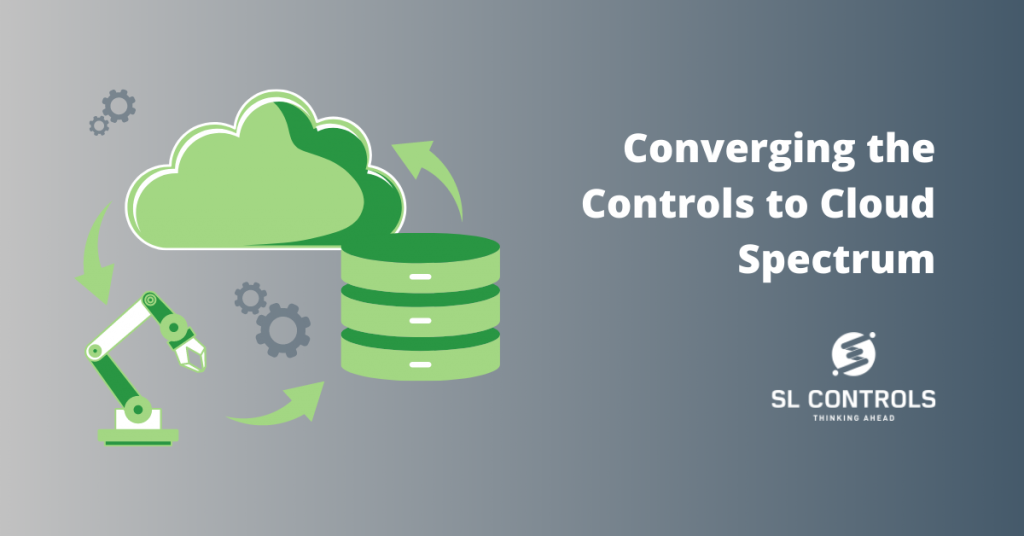Industry 4.0 as a concept provides manufacturers with impressive benefits and wide-ranging opportunities. The technologies and solutions that fall under the Industry 4.0 umbrella also help mitigate the existing and emerging business risks faced by those in the pharmaceutical, medical device, and electronics manufacturing industries.
That said, Industry 4.0 is a data-driven industrial revolution. Therefore, significant challenges exist when you begin to connect the concept of Industry 4.0 with the realities of existing manufacturing systems, processes, and operations.
As a result, the approach is often to focus the stages of your digital transformation strategy on single links in the data chain, as this helps to nudge your business forward and a little closer to your goal.
However, the complexities of data exchange and transfer can cause problems in the future. Plus, the single-link-in-the-data-chain approach doesn’t come anywhere near close to being an end-to-end solution, so it will cost you more and take you longer to achieve your objectives.
Another option is to work with several solution providers together, with each bringing a different skillset to the table with the ultimate goal of developing a full solution.
While intentions always are good, our experience at SL Controls is this approach doesn’t work either. There are many reasons why, including the fact the companies involved don’t fully understand each other’s requirements, including how what one company does impacts the work of another. Also, each company will have different sets of priorities, goals, and outcomes they want to achieve.
What you need is an integration partner with full capabilities, from machine to cloud and across any system or platform. At SL Controls, we have developed this alternative option, enabling us to deliver end-to-end turnkey manufacturing solutions that bridge the gap from controls to cloud.
Knowledge Acquisition Journey
At SL Controls, we are not tied to any particular platform or system. This vendor freedom has allowed us to explore manufacturing systems of all types and at all levels.
This assessment and analysis process has been a feature of the many different customer projects we have worked on over the past two decades. Those projects have primarily involved customers in the life sciences and technology sectors where we have upskilled based on our customers’ platforms to ensure we can provide the support they need.
The result is we now have a wide spectrum of expertise at SL Controls.
Over the past years, we have also been going through a continuous evaluation of the bigger picture to develop extensive in-house knowledge at each level of the data chain.
We also have a long history of projects that involve the development of automation code across multiple platforms, as well as integration and PLC automation projects.
This knowledge and experience have equipped our engineer base with advanced skills. We also have the required knowledge and experience to fully understand our customers’ production processes and line-level controls solutions. This understanding includes:
- Sub-systems such as vision, product identification, and traceability systems.
- Intermediate Level 2 experience in projects involving the integration of all devices on the factory floor.
- Supervisory, batch, and line clearance controls that must conform to the rigorous standards that apply in pharmaceutical and medical device production.
In addition, during the last 10 years, we have focused on enhancing our higher-level abilities to gain experience in the development of bridges to ERP and database-driven solutions. We have also built-up expertise in Microsoft’s enterprise product offerings, including the Azure cloud, to deliver data analytics, data preparation, structured learning, and real-time reporting solutions that work on any device and produce both automatically- and user-generated reports.
The aim is to help prepare our customers for the Industry 4.0 data-driven revolution.
Shaping The Future
As part of our strategic vision for the future and our upskilling efforts across all spectrums and levels of manufacturing and integration, we can deliver the digital revolution mentioned above, from controls to the cloud.
We can bridge the divide between machine and cloud through tried and tested data standards and data extraction models that are applicable to various automation platforms. Our approach involves the optimisation and structuring of data so it can be efficiently transferred and stored in the cloud not just as data, but as useful and actionable data.
Through our high-level languages developers and MES integration developers, we have learned how to best structure data on cloud-based databases and storage options (such as data warehousing), as well as on-premises storage. We can then action this data, analyse it, and deliver actionable outcomes back to the manufacturing process to drive true cloud-based, closed-loop feedback to the manufacturing process.
In other words, our machine to cloud capabilities go much further than simply PLC controls, print, and production optimisation. Instead, we are a true end-to-end solutions provider that can leverage the extensive opportunities offered by cloud technologies to optimise and improve your manufacturing process with minimal requirements for internal support.
To find out more about our controls to cloud capabilities, and discuss your requirements, get in touch with us at SL Controls today.





